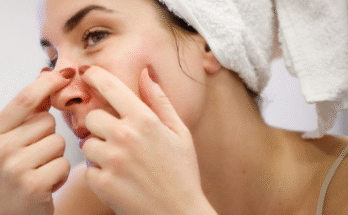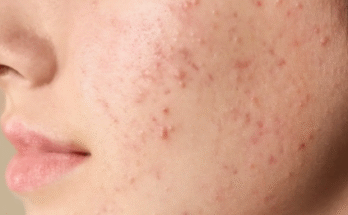Acne is one of the most common skin concerns that people face, regardless of age or background. From small whiteheads that appear overnight to persistent breakouts that seem impossible to manage, acne can affect both how your skin looks and how you feel about it. While it’s tempting to rely on quick online remedies or harsh products, skincare experts take a more thoughtful, scientific approach to treating acne. Their goal is not just to clear the skin temporarily but to restore balance, prevent future breakouts, and improve overall skin health.
Understanding how skincare professionals treat acne can help you make more informed choices about your routine and know what to expect if you ever decide to consult a dermatologist or licensed esthetician.
Understanding What Causes Acne
Before treating acne, experts always start by understanding its cause. Acne develops when hair follicles become clogged with oil, dead skin cells, and bacteria. But the reasons behind that buildup can vary from person to person. Some people experience acne because of hormonal fluctuations, others due to genetics, stress, or even the use of comedogenic (pore-clogging) skincare or makeup products.
A good skincare expert doesn’t rely on a one-size-fits-all solution. Instead, they take the time to analyze each person’s skin type, lifestyle, and existing habits. This initial consultation helps them identify patterns, such as whether the acne is primarily inflammatory (like papules or cysts) or non-inflammatory (like blackheads or whiteheads). Understanding these distinctions is crucial for choosing the right treatment plan.
The Importance of a Gentle, Balanced Routine
One of the biggest misconceptions about acne is that the skin needs to be stripped of oil to heal. In reality, harsh cleansers or excessive exfoliation can worsen breakouts by damaging the skin’s protective barrier. Experts focus on restoring balance rather than fighting the skin.
A professional skincare routine for acne often begins with a gentle cleanser that removes impurities without over-drying the skin. Cleansing twice a day — morning and night — helps prevent clogged pores while maintaining hydration.
Next, professionals emphasize the importance of non-comedogenic moisturizers. Even oily or acne-prone skin needs moisture to stay healthy. When the skin becomes too dry, it may produce even more oil, leading to new breakouts. Lightweight, oil-free moisturizers that contain ingredients like ceramides or hyaluronic acid help keep the skin calm and hydrated.
Targeted Treatments and Professional Products
After establishing a solid foundation, experts introduce targeted treatments to address specific acne concerns. These may include ingredients such as salicylic acid, benzoyl peroxide, or retinoids, which are commonly recommended for managing breakouts.
Salicylic acid, a beta hydroxy acid, works by gently exfoliating inside the pores to prevent blockages. Benzoyl peroxide helps reduce acne-causing bacteria, while retinoids encourage cell turnover to prevent new pimples from forming. A professional knows how to combine these ingredients carefully, adjusting concentrations and usage frequency to suit each individual’s skin sensitivity.
Many skincare specialists also incorporate soothing ingredients like niacinamide or green tea extract to help reduce redness and inflammation. The goal is to achieve visible improvement without irritating the skin or causing excessive dryness.
In-Clinic Treatments
In addition to at-home care, skincare experts may recommend professional treatments performed in clinics or medical spas. These treatments are designed to accelerate results safely under controlled conditions.
Chemical peels are a popular choice for acne-prone skin. They involve applying a mild acid solution to exfoliate dead skin cells and clear out clogged pores. When done by a professional, chemical peels can help smooth skin texture and minimize post-acne marks over time.
Another common treatment is light or laser therapy. These technologies target acne-causing bacteria and can help reduce inflammation. Some forms of light therapy also encourage healing and may help regulate oil production.
For more severe cases, dermatologists might offer prescription-strength options, such as topical retinoids, antibiotics, or other medications tailored to each patient’s condition. Every step of the process is guided by medical knowledge and experience to ensure both safety and effectiveness.
The Role of Lifestyle and Habits
Skincare experts recognize that acne isn’t just a surface issue — it can be influenced by lifestyle factors, too. They often discuss how stress, diet, and sleep can affect the skin’s condition. For instance, chronic stress may increase the production of certain hormones that lead to excess oil. Meanwhile, inadequate sleep can slow down the skin’s natural healing process.
Professionals may recommend small, manageable changes, such as maintaining a balanced diet with plenty of water, fruits, and vegetables. They also emphasize consistent sleep and gentle skincare practices, like avoiding touching or picking at the skin. These habits may seem simple, but they play a significant role in maintaining clear, healthy skin over time.
Patience and Realistic Expectations
One of the key messages skincare experts share is that acne treatment takes time. There is no instant cure. Depending on the type and severity of acne, visible results may take several weeks or even months. The skin renews itself gradually, and sustainable improvement requires consistency.
Professionals help their clients set realistic expectations and encourage them to stay patient with the process. They also provide emotional support — something often overlooked in acne care. Dealing with acne can affect confidence, and having a compassionate professional who understands this journey can make a big difference.
Long-Term Maintenance and Prevention
Once the acne is under control, experts shift the focus to prevention. This includes continuing with a personalized skincare routine and adjusting products as the skin changes. Regular follow-up visits help monitor progress and make timely adjustments to prevent new breakouts.
Maintenance may involve using mild exfoliants a few times a week, sticking with sunscreen daily, and keeping pores clean through consistent cleansing. Sunscreen is especially important because many acne treatments can make the skin more sensitive to sunlight. A broad-spectrum, non-comedogenic sunscreen helps protect the skin and prevent dark spots or post-acne pigmentation.
A Holistic Approach to Skin Confidence
What truly sets skincare experts apart is their holistic approach. They treat acne not just as a cosmetic issue but as part of overall skin wellness. Instead of focusing solely on eliminating blemishes, they aim to create a foundation of healthy, balanced skin that glows naturally.
Many clients find that after following expert guidance, they not only see fewer breakouts but also gain a deeper understanding of their skin’s needs. This empowerment leads to better habits and more confidence in their appearance.
Final Thoughts
Acne treatment is a journey — one that requires knowledge, patience, and care. While it can be frustrating, the good news is that professional skincare offers many safe and effective options. From gentle daily routines to advanced in-clinic treatments, experts are trained to guide people through the process with compassion and expertise.
If you’re struggling with acne, consider consulting a licensed skincare professional. They can help identify the underlying causes of your breakouts and design a personalized plan that works with your skin, not against it. With the right care, consistent habits, and realistic expectations, clearer and healthier skin is an achievable goal for nearly everyone.


